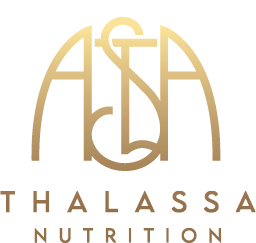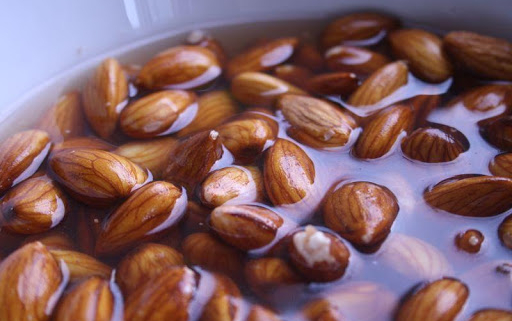The Benefits of Soaking Nuts and Seeds
Nature has set it up so that the nut, grain, and seed may survive until proper growing conditions are present. Nature’s defense mechanism includes nutritional inhibitors and toxic substances that can be removed naturally when there is enough precipitation to sustain a new plant after the nut, grain or seed germinates. When it rains the nut, grain or seed gets wet and can then germinate to produce a plant. So we are mimicking nature when we soak our nuts, grains, and seeds.
Nutritional inhibitors and toxic substances found in nuts grains and seed can be minimized or eliminated by soaking. These inhibitors and toxic substances are enzyme inhibitors, phytates (phytic acid), polyphenols (tannins), and goitrogens.
What Are Enzyme Inhibitors?
There are digestive enzymes and metabolic enzymes. Digestive enzymes help break down food. Metabolic enzymes help every biological process the body does. Enzyme inhibitors will clog, warp or denature an active site of an enzyme. They may also bind to the enzyme, which will prevent the intended molecule from binding. “Once again, the habits of traditional peoples should serve as a guide. They understood instinctively that nuts are best soaked or partially sprouted before eaten. This is because nuts contain numerous enzyme inhibitors that can put a real strain on the digestive mechanism if consumed in excess.”
What Are Phytates?
All grains contain phytic acid in the outer layer or bran. Untreated phytic acid can combine with calcium, magnesium, copper, iron and especially zinc in the intestinal tract and block their absorption. This is why a diet high in unfermented whole grains may lead to serious mineral deficiencies and bone loss. The modern misguided practice of consuming large amounts of unprocessed bran often improves colon transit time at first but may lead to irritable bowel syndrome and, in the long term, many other adverse effects.
Why Soak Nuts, Grains, And Seeds?
- To remove or reduce phytic acid.
- To remove or reduce tannins.
- To neutralize the enzyme inhibitors.
- To encourage the production of beneficial enzymes.
- To increase the amounts of vitamins, especially B vitamins.
- To break down gluten and make digestion easier.
- To make the proteins more readily available for absorption.
- To prevent mineral deficiencies and bone loss.
- To help neutralize toxins in the colon and keep the colon clean.
- To prevent many health diseases and conditions.
Soaking allows enzymes, lactobacilli, and other helpful organisms to break down and neutralize a large portion of phytic acid in grains. Soaking in warm water also neutralizes enzyme inhibitors, present in all seeds, and encourages the production of numerous beneficial enzymes. The action of these enzymes also increases the amount of many vitamins, especially B vitamins. During the process of soaking and fermenting, gluten and other difficult-to-digest proteins are partially broken down into simpler components that are more readily available for absorption.
What Can Be Used To Soak Nuts, Grains, And Seeds?
I have found many references to soaking nuts, grains, and seeds in water, salt water, or a warm water mixture with something acidic like yogurt, whey or lemon juice. It seems within 7 to 24 hours the enzyme inhibitors are neutralized and the anti-nutrients are broken down regardless of the method you choose. There is evidence that the process works when you see sprouting begin.
How Long Does The Soaking Process Take?
As little as seven hours of soaking in warm acidulated water will neutralize a large portion of phytic acid in grains. The simple practice of soaking cracked or rolled cereal grains overnight will vastly improve their nutritional benefits. Flour products should be soaked at room temperature for at least twelve hours, but better results may be obtained with a twenty-four-hour soaking.

 NO
NO no
no